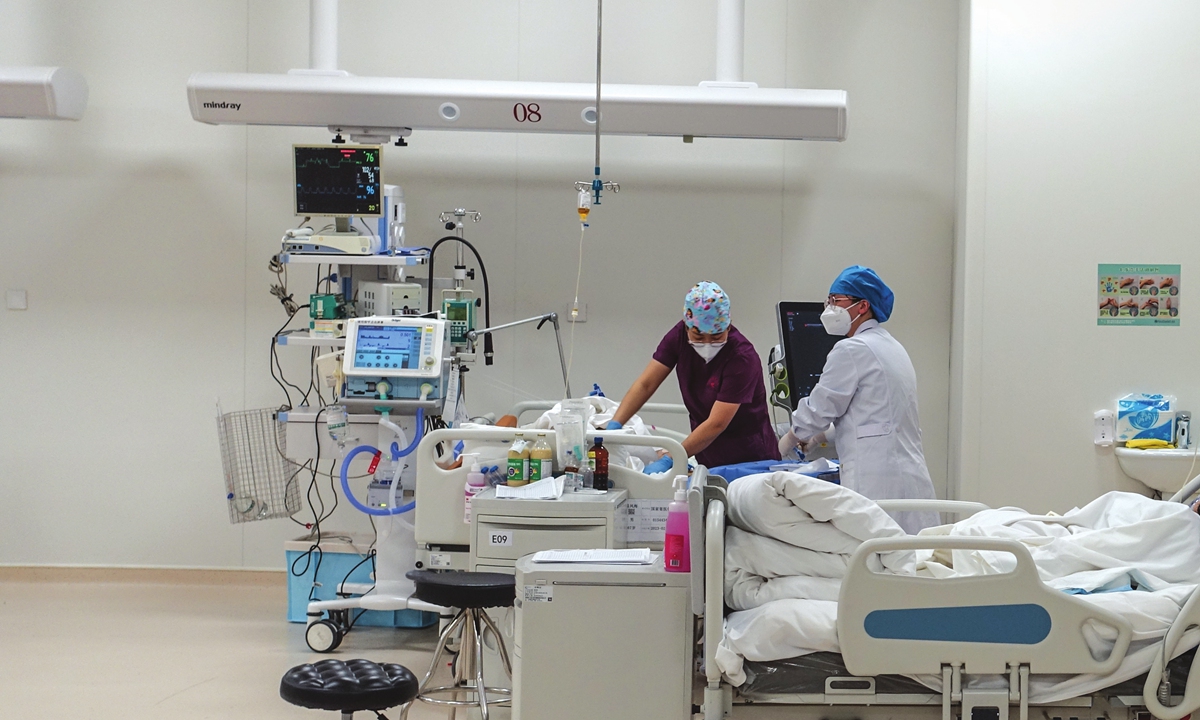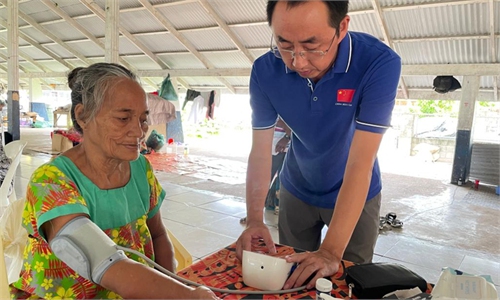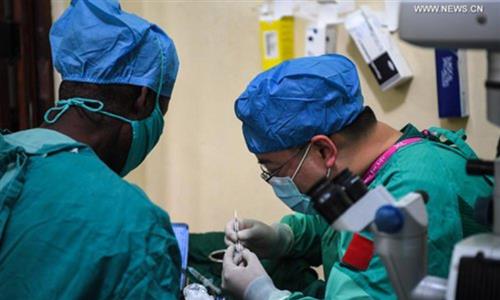
A doctor and a nurse treat a patient in the fully equipped EICU at the Second Norman Bethune Hospital of Jilin University on February 4, 2023. Photo: Lin Xiaoyi/GT
Multiple provincial-level regions, including Beijing, Shanghai and Jiangsu have revved up action in recent days after a sweeping, "more forceful than ever" anti-corruption campaign has gathered pace. More than 150 hospital officials have been probed over the past week, media calculated.
Shanghai on Tuesday launched a special campaign to correct misconduct in the pharmaceutical sales and healthcare services sectors, as Chinese authorities intensify anti-corruption efforts in the medical sector.
Thirteen departments, including the Shanghai Municipal Health Commission, jointly issued a notice requiring anti-corruption inspections at medical institutions. The inspections involve the use of high-value consumables and misconduct such as bribery.
The notice requires all medical institutions to conduct self-examinations, self-correction and to submit reports to the Shanghai Municipal Health Commission before October 31.
Discipline inspection commissions in Shandong, Shanxi and Xizang all held meetings this week to address the corruption probes in the medical sector.
In July, the National Health Commission, the National Healthcare Security Administration, the State Administration for Market Regulation and six other government agencies launched a year-long campaign to rectify corruption in the pharmaceutical industry, according to a statement on the health commission's website on July 21.
It stressed that the authorities will conduct in-depth and systemic governance of the pharmaceutical industry, with key figures and key links such as manufacturing, supply and sales in focus, in order to weed out corruption.
On July 28, the Central Commission for Discipline Inspection held a meeting in Beijing to prepare for the campaign.
Currently, at least 159 hospital chiefs across the country have been probed for allegedly violating laws and regulations, double the number in 2022, media calculated.
The anti-corruption campaign in 2023 is different from previous campaigns, as it is sweeping and more vigorous than ever, Xu Yucai, former deputy head of the health commission in Shanyang county, Shaanxi Province said. Xu said the reason is that corruption in the medical sector has been more persistent than ever in recent years. Additionally, previous anti-corruption campaigns focused more on medical institutes and medical employees, while this one is more overarching.
Another reason is that corruption in the medical sector is eroding more and more of the medical system, making it harder for the public to access health care, and making the financial burden of going to hospitals heavier, said Wan Xin, a Beijing-based lawyer specializing in the medical sector.
"Corruption in the medical sector is partly the culprit for the public's difficulty in accessing hospitals, now it is about time to eradicate this problem," said Wan.
In 2020, an employee from a hospital in Huangshan, Anhui was expelled and sentenced to 11 years and six months in prison after he was found taking more than 16.8 million yuan ($2.33 million) in bribes by helping pharmaceutical companies and medical representatives earn illegal profits.
Xu noted that like many other sectors, corruption in the medical sector has also resulted in immature market development and a legal system.
"Many actions are in a gray area, and those criminals are good at concealing their corruption methods," said Xu.
Wan suggested that the next step for hospitals to crack down on corruption is to combine Party building and anti-corruption, and improve hospital rules. He also suggested strengthening big data construction in the medical sector, in order to promote data transparency, such as the price of purchasing medicines and equipment.



